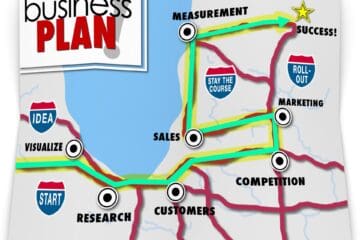Have you ever wondered how some sales teams manage to make the most out of their day, visiting numerous clients and still finding time to prospect for new ones?
The secret lies in mastering the art of sales route planning. This strategic process, when done right, can significantly boost your sales team’s productivity and maximize sales opportunities.
Understanding Sales Route Planning: The Chessboard of Sales
Sales route planning is akin to playing a strategic game of chess. Success in sales is not merely about moving your sales representatives from one location to another. It involves thoughtful planning, anticipating customer behavior, and strategically scheduling visits to maximize your chances of achieving your sales goals.
Simply put, sales schedule planning involves finding the best paths for sales representatives to visit clients or prospects. The goal is to minimize travel time, and distance, and maximize productive customer visits.
But how do you plan your moves? What factors should you consider when organizing your itineraries?
The key lies in understanding your sales area, examining customer data, and utilizing technology. It involves knowing where your customers are located, their preferred meeting times, and the potential challenges that may arise.
Just like a chess game, sales planning requires foresight, strategy, and adaptability. It means thinking ahead, anticipating market changes, and adjusting your approach as circumstances unfold.
Key Factors in Sales Route Planning
Sales route creation is not as simple as plotting points on a map. There are several key factors that come into play, acting as the compass guiding your path to sales success.
Let’s delve into these crucial elements that can make or break your sales planning strategy.
- Sales Objectives: What do you want to accomplish? Are you aiming to close a set number of deals or prioritize fostering relationships with potential clients? Your objectives will impact your sales planning.
- Customer Data: Understanding your customers is crucial. Where are they located? What are their preferred meeting times? Understanding your customers helps you plan itineraries more effectively.
- Schedules: Sales reps often have multiple meetings in a day. You need to consider these schedules when planning routes to ensure that you can attend all your appointments.
- Timeframes: How much time do you have for each visit? How much travel time should you allocate? These timeframes will affect your schedule planning.
- Customer Prioritization: Not all customers are the same. By prioritizing customers based on factors like deal potential, customer value, and meeting preferences, you can focus on the ones that matter most.
- Geographical Factors: Understanding the layout of your sales territory, including traffic patterns and peak hours, helps in creating more efficient paths.
- Flexibility: Your route planning strategy should be adaptable to handle last-minute customer cancellations, traffic delays, or additional stops. Flexibility ensures productivity even when plans change.
For example, if you have an important customer who prefers morning meetings, you would prioritize them and plan your schedule accordingly.
Similarly, when you have multiple stops, it’s important to consider the best sequence to minimize travel time and maximize efficiency.
The Double-Edged Sword: Benefits and Challenges of Sales Route Planning
Sales route planning has its pros and cons. On the positive side, it offers increased efficiency, more customer visits, and higher sales potential. However, it also comes with challenges that can complicate and consume time.
Let’s examine the benefits and challenges of sales route planning to gain a well-rounded understanding.
The Bright Side: Benefits of Sales Route Planning
- Reaching Valuable Customers: Efficient planning enables sales reps to connect with important prospects, increasing their chances of closing deals.
- Reducing Travel Time: Well-planned itineraries help sales reps minimize travel time, giving them more opportunities to engage with customers and less time spent commuting.
- Boosting Efficiency: Route planning helps sales reps manage their time better, leading to increased efficiency and productivity.
- Increasing Revenue: More customer visits mean more opportunities to close deals, which ultimately leads to increased revenue.
- Improving Customer Relationships: By optimizing your routes, you can ensure that you’re always on time for your appointments. This not only shows professionalism but also respect for your customers’ time, which can significantly improve your relationships with them.
- Reducing Costs: Efficient planning can also lead to cost savings. By minimizing travel time and distance, you can reduce fuel consumption and vehicle wear and tear, leading to lower operational costs. These savings can then be reinvested into your business to drive further growth.
- Improving Customer Relationships: Showing on time for your appointments not only shows professionalism but also respect for your customers’ time.
- Reducing Costs: Effective sales planning can also lead to cost savings. By minimizing travel time and distance, you can reduce fuel consumption and vehicle wear and tear, leading to lower operational costs.
Imagine being able to meet more clients in a day because you’ve planned your route well – that’s more opportunities to close deals and generate revenue.
The Flip Side: Challenges in Sales Route Planning
- Time-Consuming: Planning routes, especially for multiple stops and complex schedules, can be a time-consuming process.
- Limitations of Common Tools: Common tools like Google Maps may not be sufficient for sales itinerary planning as they don’t optimize routes with multiple stops.
- Unexpected Changes: Sales reps often have to deal with unexpected changes, such as last-minute cancellations or traffic delays, which can disrupt planned routes.
- Sales Territories: Sales territories can be complex, with customers scattered across vast areas. Factors like traffic conditions and customer preferences must be considered for effective planning.
Despite these challenges, with the right approach and tools, you can turn these hurdles into stepping stones toward mastering sales schedule planning.
Tools for Sales Route Planning: Your Personal Assistant
In the digital era, technology has simplified various aspects of our lives, including sales route creation.
There are tools such as sales route apps, route optimization software, and specific solutions like Beest.app that streamline and enhance this process.
Here are some types of smart and innovative modern tools you can utilize to better streamline and enhance your sales team’s routes. It’s like having a personal assistant to help you plan your day and maximize every sales trip.
- Field Sales Management Software: This type of software can help manage and coordinate field sales activities, including route planning. It can provide real-time updates, track sales rep performance, and integrate with other business systems for seamless operations.
- Sales Enablement Tools: These tools equip sales teams with the necessary resources, content, and information to sell more effectively. They can assist in planning by providing valuable insights into customer behavior, sales trends, and market dynamics.
- Optimize Routes: These tools utilize advanced algorithms to plan the most efficient routes, considering factors like traffic, distance, and customer preferences.
- Prioritize Prospects: With these tools, you can prioritize prospects based on factors such as deal potential, customer value, and meeting preferences.
- Flexible Route Adjustments: Many of these tools offer mobile apps, allowing sales reps to adapt their routes on the go when faced with unexpected changes.
- Batch Address Input: You can input multiple addresses at once, saving time and effort.
10 Best Practices in Sales Route Planning: The Road to Success
Mastering sales route planning is not a one-time task. It’s a continuous journey of learning, improving, and adapting. Here are some tips to help you along the way.
1. Regularly Review and Modify Routes
Sales territories and customer preferences can change over time. Regularly review and modify your routes based on these changes and performance metrics.
2. Leverage Technology
Use route planners to automate and streamline the process. These tools can save you time, reduce errors, and provide valuable insights.
3. Provide Training and Assistance
Equip your reps with the necessary skills and knowledge to effectively plan their routes. This can include training on how to use route planning tools, understanding customer data, and managing their time.
4. Balance Workload
Ensure that the workload is evenly distributed among your sales reps. Overburdening some reps while others have a lighter load can lead to inefficiencies and lower morale.
5. Plan for Contingencies
Unexpected changes are part of the sales rep’s life. Plan for contingencies such as traffic delays, last-minute cancellations, or additional stops.
6. Focus on High-Value Customers
Not all customers are the same. Prioritize your high-value customers in route planning to allocate sufficient time and resources, leading to increased conversions.
7. Consider Traffic Times
Traffic can impact travel time. When planning routes, take into account peak traffic times and schedule visits accordingly to minimize delays.
8. Utilize Data Insights
Leverage customer data and analytics to inform route planning. Gain valuable insights into customer behavior and preferences, enabling more effective routes.
9. Maintain Team Communication
Effective communication is essential. Keep your team informed about planned routes, changes, and expectations for aligned efforts and successful outcomes.
10. Evaluate and Adapt
Regularly assess the effectiveness of your route planning. Are you meeting sales goals? Are your routes efficient? Adjust routes and strategies accordingly for continuous improvement. Remember, route planning is an ongoing process of learning and enhancement.
Final Thoughts | Planning Your Route to Sales Success
There you have it, your complete guide to mastering sales route planning. Remember, schedule route planning is more than just mapping points; it involves understanding your sales territory, prioritizing customers, and optimizing routes for productivity and sales opportunities.
As you embark on your journey to master sales route planning, remember that each step, route, and customer visit is an opportunity for growth. Challenges will arise, but so will the rewards.
Equip yourself with the right tools, embrace challenges, and strive for improvement. The road to sales success is ever-evolving, and with effective route planning strategies, you’re on the right path.
Start working on your winning sales route by booking a demo with Beest.app – a trusted and reliable field sales management software and an all-in-one sales enablement tool.
Frequently Asked Questions
What is sales route planning?
Sales route planning is the process of determining the most efficient routes for sales representatives to follow when visiting clients or prospects. The goal is to optimize travel time, minimize distance, and maximize the number of productive customer visits.
Why is sales route planning important?
Sales schedule planning is crucial as it helps sales reps manage their time effectively, reach more customers, and ultimately, increase conversions. It also helps reduce travel time and costs, boosting overall productivity.
What factors should I consider in sales route planning?
Key factors to consider include your sales goals, customer data, schedules, and timeframes. It’s also important to prioritize high-value customers and consider geographical and traffic conditions.
What are some challenges in sales route planning?
Some common challenges include the time-consuming nature of the process, limitations of common tools like Google Maps, and the need to adapt to unexpected changes such as last-minute cancellations or traffic delays.
How can technology help in sales route planning?
Technology, like route planners and schedule management software, can automate and streamline the process. These tools use advanced algorithms to plan the most efficient routes, prioritize prospects, adjust routes on the go, and input multiple addresses at once.
What are some best practices in route planning?
Best practices include regularly reviewing and modifying routes, leveraging technology, providing training and assistance to sales reps, balancing workload, and planning for contingencies. It’s also important to prioritize high-value customers, consider peak traffic times, use data-driven insights, and maintain effective communication within the team.
How can I measure the effectiveness of my sales route planning?
You can measure effectiveness by tracking key performance indicators (KPIs) such as the number of customer visits per day, time spent traveling versus time spent with customers, the number of deals closed, and the revenue generated.
What should I do if my planned route is disrupted by unexpected changes?
Your route planning strategy should be flexible enough to accommodate unexpected changes. Leveraging route planning software can help you adjust routes on the go, ensuring you can still reach your customers on time.









